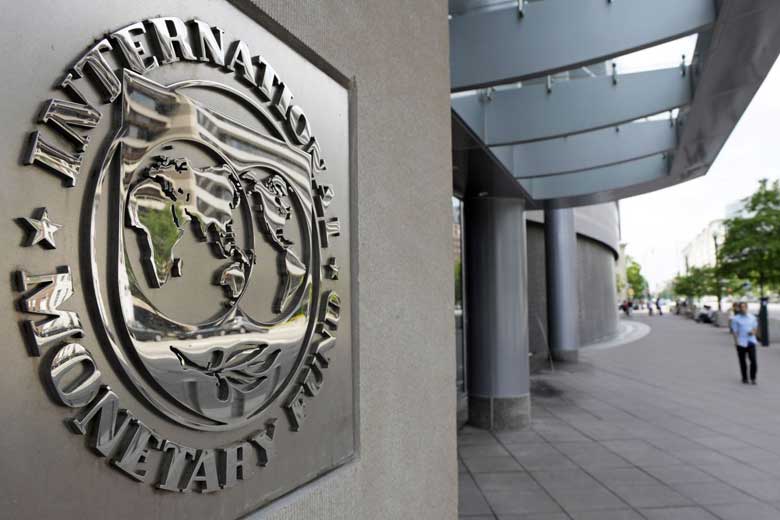- Dump Multiple Exchange Rates, Forex Curbs, IMF tells FG
The International Monetary Fund on Thursday urged the Federal Government to lift the remaining foreign exchange restrictions and scrap the system of multiple exchange rates in order to revive the Nigerian economy.
The recommendation came in the Washington-based fund’s regular assessment of Nigeria’s economy.
The report came on the heels of a recent visit by a team of the IMF officials to Nigeria to assess the economy.
In a statement released on its website and titled: ‘IMF Executive Board concludes 2017 Article IV consultation with Nigeria’, the fund emphasised that stronger macroeconomic policies were urgently needed to rebuild confidence and foster economic recovery in the country.
It read in part, “Directors underscored that external adjustment is necessary to protect foreign currency buffers and reduce vulnerabilities. They commended the recent easing of some exchange restrictions and urged the authorities to remove the remaining restrictions and multiple currency practices, thus unifying the foreign exchange market and helping regain investor confidence.
“Directors emphasised that these policies should be supported by tighter monetary policy and fiscal consolidation to anchor inflation expectations and to limit the risk of exchange rate overshooting, as well as structural reforms to improve competitiveness.”
While commending the Central Bank of Nigeria’s efforts to keep the country’s banks afloat, the IMF stated that the issue of declining asset quality in the financial services industry must be urgently addressed.
It stated, “Directors welcomed the steps to strengthen banking sector’s resilience through stronger prudential requirements. With asset quality declining, they recommended further intensifying bank monitoring, enhancing contingency planning, and strengthening resolution frameworks.
“Directors encouraged quickly increasing the capital of undercapitalised banks and putting a time limit on regulatory forbearance.”
The IMF said it recognised that the Nigerian economy had been negatively impacted by low oil prices and production.
It commended the efforts already made by the Federal Government to reduce vulnerabilities and enhance resilience, including increasing fuel prices, raising the Monetary Policy Rate, and allowing the exchange rate to depreciate.
However, in the light of the persisting internal and external challenges, the fund emphasised that stronger macroeconomic policies were urgently needed to rebuild confidence and foster economic recovery.
It said, “Directors welcomed the authorities’ Economic Recovery and Growth Plan, which focuses on economic diversification driven by the private sector, and government initiatives to strengthen infrastructure, including the recently adopted power sector recovery plan. However, they underlined that without stronger policies, these objectives may not be achieved.
“Directors generally emphasised the need for a front-loaded, revenue-based fiscal consolidation starting in 2017, to reduce the Federal Government’s interest payments-to-revenue ratio to sustainable levels. They underscored that priority should be given to increasing non-oil revenue, including through raising VAT and excise rates, strengthening compliance, and closing loopholes and exemptions.”
It added, “Administering an independent fuel price-setting mechanism to eliminate fuel subsidies, strengthening public financial management, and developing a well-targeted social safety net would also support the adjustment. Directors stressed the need to contain the fiscal deficit of state and local governments, including through improved transparency and monitoring.
“Directors emphasised that ambitious structural reforms are key to achieving a competitive, investment-driven economy that is less dependent on oil. Priority should be given to improving infrastructure, enhancing the business environment, improving access to financing for small enterprises, and strengthening governance and anti-corruption efforts. Timely and effective implementation of these measures would promote sustainable and inclusive growth.”
A staff report, an accompanying document seen by Reuters and addressed to the IMF’s executive board, outlined a raft of failings in Nigeria’s handling of its economy.
The World Bank has been in talks with the Federal Government for more than a year over an application for a loan of at least $1bn and the African Development Bank has $400m on offer. But talks have stalled over economic reforms.
Nigeria’s economy contracted by 1.5 per cent last year.
“Under unchanged policies, the outlook remains challenging,” the report stated, adding that growth would “pick up only slightly” to 0.8 per cent this year, mostly reflecting some recovery in oil production.
The fund noted that the country’s fiscal deficit increased to 4.7 per cent of the Gross Domestic Product in 2016, up from 3.5 per cent in 2015, due to revenue shocks.


 Billionaire Watch3 weeks ago
Billionaire Watch3 weeks ago
 Startups4 weeks ago
Startups4 weeks ago
 News4 weeks ago
News4 weeks ago
 News4 weeks ago
News4 weeks ago
 Bitcoin4 weeks ago
Bitcoin4 weeks ago
 Naira4 weeks ago
Naira4 weeks ago
 Forex3 weeks ago
Forex3 weeks ago
 Treasury Bills4 weeks ago
Treasury Bills4 weeks ago
























